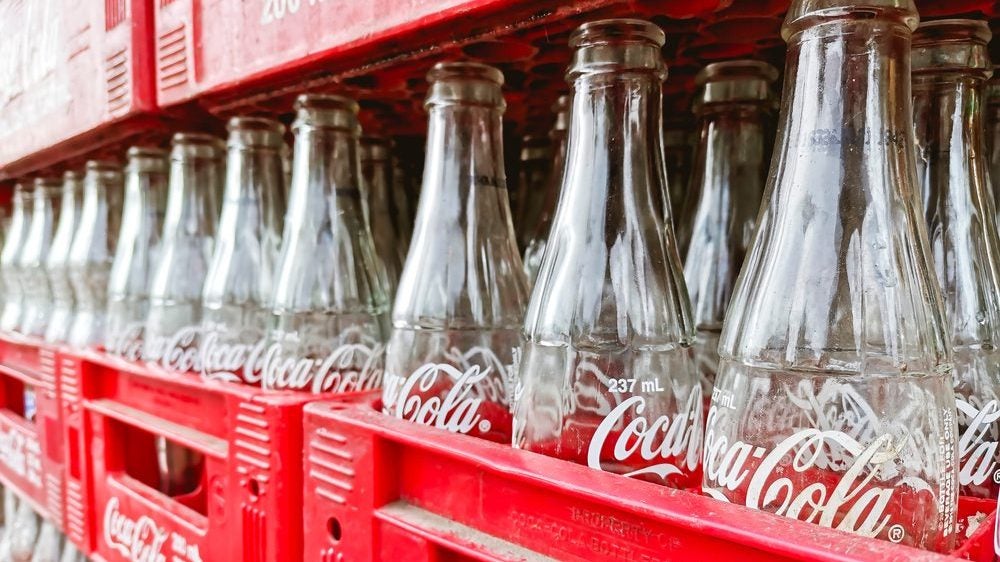
Coca-Cola HBC has invested €12m ($12.6m) in a returnable glass bottling line at a plant in Austria as part of efforts to be a “net-zero” business by 2040.
The investment is supported by a €4m grant from the Austrian government, as part of its plan to fund beverage companies and retailers moving towards a circular economy in packaging.
The installation of the line also comes ahead of the introduction of new quotas for returnable packaging due in 2024, when every third store owned by a company must offer returnables, a figure set to rise to 90% of stores by 2025.
Coca-Cola HBC’s new line will produce up to 50,000 bottles per hour. The returnable and resealable glass bottles will be 400ml in size.
The electricity used at the site in Edestal is generated by green and renewable sources. However, Coca-Cola HBC has been pushing to improve efficiency through a ‘digital twin’ of its processing system, made by Microsoft. Over a 12-week trial, the bottler said there had been no downtime in the new line and the plant had cut its energy usage by 9%.
Zoran Bogdanovic, CEO of Coca-Cola HBC, said: “Austria is already one of our fastest-growing markets for reusable packaging and this new line will further accelerate this packaging type, which is in demand by our customers and consumers alike.”

US Tariffs are shifting - will you react or anticipate?
Don’t let policy changes catch you off guard. Stay proactive with real-time data and expert analysis.
By GlobalDataCoca-Cola HBC, which has signed up to the Science Based Target Initiative, plans to be net zero across its value chain by 2040. It defines “net zero” as reducing “our direct emissions to an absolute minimum” and says it will “work in partnership with our suppliers to eliminate the 90% of our carbon footprint that results from third parties”.
The bottler says it has cut its emissions by 30% since 2010. It has a target to lower its “value chain emissions in Scopes 1, 2 and 3 by 25%” by 2030 with a further 50% reduction in the following decade.
Packaging remains a significant contributor to the company’s emissions, accounting for 34% of Scope 3 emissions. Overall, Scope 3 emissions make up 89.2% of Coca-Cola HBC’s total emissions.
Customers will also be able to buy one-litre returnable glass bottles for a variety of products: Coca-Cola, Coca-Cola Zero Sugar, Fanta Orange and Sprite.
The new line reflects an overall shift towards environmental concerns in Austria for Coca-Cola HBC. Filings made by the company in relation to Austria have been analysed by GlobalData, Just Drinks’ parent company, and demonstrate that ESG, the environment and a circular economy have fluctuated in emphasis over a five-year period, but have remained consistently more important than in 2018.
Coca-Cola HBC has made other significant shifts in Austria, which was one of its first markets to see the company transition to 100% recycled PET bottles for locally produced products. It has also introduced KeelClip, which replaces shrink-wrap packaging with cardboard for multipack cans.
Our signals coverage is powered by GlobalData’s Thematic Engine, which tags millions of data items across six alternative datasets — patents, jobs, deals, company filings, social media mentions and news — to themes, sectors and companies. These signals enhance our predictive capabilities, helping us to identify the most disruptive threats across each of the sectors we cover and the companies best placed to succeed.



